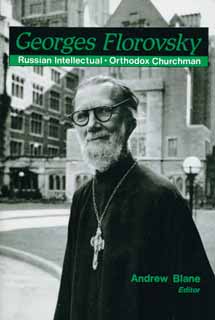
A man from a city decides to move to the country and start a chicken farm. He goes to the local feed store and buys one hundred baby chicks. A week later he buys two hundred baby chicks. The third week he buys five hundred baby chicks. The feed store owner says, “Wow, you must be really doing well.” The man replies with a sigh, “Not really, I’m either planting them too deep or too far apart.”
Jesus says God’s kingdom is like a farm and unfortunately, the church which represents that farm seems to continue to keep losing ground. I spoke to a man in the county jail the other day who told me his struggles to listen to the message I gave about God’s kingdom and church because his family were very involved in church and all they did was reject and judge him.
Betting on the Farm
When we look at what is happening in the American church
today, we see a growing number of the unchurched, a breakdown of many families,
and the rise of atheism in our nation.
There has been a fifty percent growth of atheism in our country in the
last fifteen years. If that was
happening in the church, people would be saying this nation was going through a
national revival.
If the parable of the soils teaches us that good soil produces a miraculous harvest by the power of God then what does this parable mean concerning the seed of God’s kingdom growing secretly? Why does God’s kingdom so hidden and Jesus message seem so secretive? I met a man named Kenny Moore this week who told me this incredible journey he was on with God for the last ten months. He has been a Christian for many years but its like his relationship with God went into hyper-drive this past year. God is using Kenny to not only transform his family but the community he lives in. Despite all the terrible numbers and negative signs of the times we live in, Jesus says the kingdom of God can start like a little mustard seed or with one person who may produce such a supernatural harvest that the positives will way out weigh all the negatives. Listen to the reading of God’s Word:
And He said, “The kingdom of God
The Secret Message of
God’s Kingdom Coming to Earth
Why is the message that Jesus teaches through the parables
so hidden? Parables are to stretch us
and get us to ask more questions. They
get us to search a matter out and wrestle for the answers. Jesus is never one who gives easy answers or
takes short cuts to truth or ever gives five quick and easy steps to find
success in life. What we need to learn
is not to listen to parables with our ears but with our hearts.
The seed is
hidden under the soil. God plants His
word deep into our hearts. Truth is
often hidden and we have to dig deep and passionately seek after it if we are
to really search things out. Our heart
is the place where growth secretly happens.
Pride says I have nothing new to learn.
Humility says, “I don’t understand.
Teach me some more. Help me to
understand.”
Last year I
saw the movie “God’s Not Dead” which powerfully portrayed a college student
standing up for his faith in a college class whose professor was an outspoken
atheist. Atheists got upset at this
movie because they could only see an atheist being presented in a negative
light. Paul says it this way that
“knowledge puffs up but love builds up” (1 Corinthians 8:1). What I have seen in the academy and higher
education is whether the teacher is an atheist, agnostic or even a Christian,
there have been many teachers who have fallen into the trap of intellectual
pride and conceit. Jesus parables often
strike right at the heart of things and goes directly for our hearts. His parables have a way of exposing our pride
and arrogance and forcing us to look deeper at our own attitudes and
prejudices.
Jesus
parables often surprises us and takes us off guard. Just like this parable, we can not hold the
seed in our hand and expect anything to happen.
Unless we put the seed in the soil (one’s heart) then it will not
grow. When we do that we will see what
the power of God does. Another related
teaching of Jesus is the seed must die to self.
John 12:24-25 says,
Most assuredly, I say
to you, unless a grain of wheat falls into the ground and dies, it remains
alone; but if it dies, it produces much grain.
He who loves his life will lose it, and he who keeps his life in this world
will keep it for eternal life.
Notice the farmer does not go out to the field each day to
dig up the seed and see if there is any progress. Life is in the seed of God’s word that grows
quietly, secretly, hidden in your heart.
Within this parable is the pregnant expectation of resurrection. Death turns into eternal life. Dying to oneself turns into resurrection new
life.
You need to stop looking at what you are trying to accomplish for God and look to what God is trying to accomplish in you!
God Delights in Us
God’s dream is to build a home in you! God’s desire is to plant his Holy spirit in
you. You are the place where God’s
dreams come true. God delights in you
and hides his treasure in you. The
mystery of the kingdom is God planted his kingdom on a bare hill called calvary
and He also plants his kingdom in you.
The church
like the world wants everything
superficially fast when it comes to instant spiritual growth or maturity. But notice in this parable how God kingdom
grows slowly and hidden. Silent slow
growth is the pathway towards deeper spiritual maturity. This especially happens when we do as the
parable suggests and plant and scatter seeds of faith, hope and love to
others. Where we tell our neighbors and
co-workers and friends that no matter what they are going through, God’s
kingdom grace and power is available for every situation in life.
How To Grow Seeds
1. Cultivate
a vision of God’s kingdom. God’s
secret kingdom is more powerful and cosmic
in nature. God’s beauty, mystery and majesty is so
wonderful to behold.
2. Patiently listen to God’s word. God has planted his word deep into your soul
and
just like
God patiently waits for the seed of life to grow in us, we also waitpatiently on the God who waits on us.
- Learn the discipline of silent contemplation of God’s word. Silent contemplation is where we wait on God and learn to be His ambassadors for His kingdom.
focused so long on heaven as the goal at the end of life without calling people to
the kingdom now focus of Jesus. Jesus brings heaven to earth and he wants us to
be a part of His great mission to bring heaven to every part of the world around
us.
When we keep the message to ourselves and not share it, we
betray the message of God’s kingdom.
When we simply defend the status quo around us and not challenge the
ways of the world, we betray Jesus message of the kingdom. When we get caught up in pursuing money,
power and status over others, we betray God’s kingdom message.
Hiding the Message in
New Places
Where have you taken the message of God’s kingdom
lately? Are there new places God is
calling you to take his revolutionary kingdom message? Is the secret message of God’s kingdom
getting out in your life? I spoke about
Kenny Moore earlier in how God was producing a greater harvest in his life
which is growing in abundance in God’s field of this world.
I am
excited about the new mission and season of being a caregiver for my Dad. I am moving him to an assisted living nearby
and I look forward to the many opportunities and ways God takes me to this new
field, new work, and new ministry with
my Dad and those who surround his life.
Ephesians 3:20 says it like this:
Now to Him (God) who
is doing exceedingly abundantly above all that we ask or think according to the
power that works in us . . .











